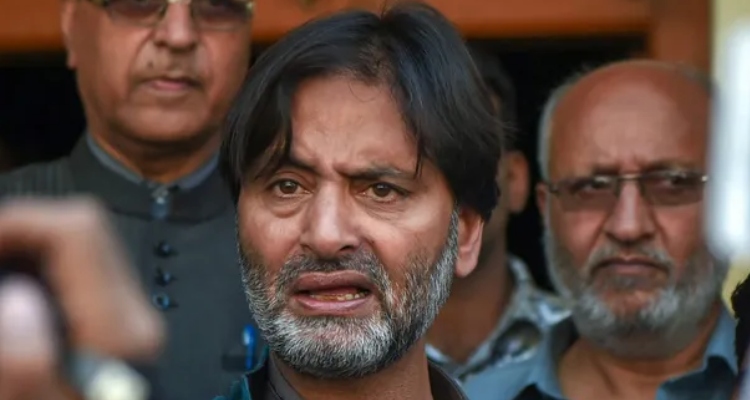
In a significant development, the Supreme Court of India on Friday directed separatist leader Yasin Malik to cross-examine prosecution witnesses through video conferencing.
The proceedings will connect Tihar Jail, where Malik is currently housed, to a special court in Jammu.
No Physical Appearance Due To Security Concerns
A bench comprising Justices Abhay S. Oka and Ujjal Bhuyan declined the request to produce Malik physically in Jammu for trial. The cases in question relate to the 1989 assassination of four Indian Air Force (IAF) officials and the abduction of Rubaiya Sayeed, daughter of former Jammu and Kashmir Chief Minister Mufti Muhammad Sayeed.
The court highlighted that the central government had, in December 2025, issued an order under Section 303 of the Bharatiya Nagarik Suraksha Sanhita and the Unlawful Activities (Prevention) Act, restricting Malik’s movement outside Delhi for one year.
Video Conferencing Infrastructure In Place
The bench noted that both the special court in Jammu and Tihar Jail are equipped with the necessary video conferencing facilities. This was confirmed through reports from the Registrar General of the Jammu and Kashmir and Ladakh High Court, along with the Tihar Jail Superintendent.
Solicitor General Tushar Mehta informed the court about security concerns regarding Malik’s physical production, reinforcing the decision to conduct the cross-examination virtually.
Court was hearing a petition filed by the Central Bureau of Investigation (CBI) seeking the transfer of Malik’s trials, the 1989 Rubaiya Sayeed kidnapping case and the 1990 Srinagar shootout case—from Jammu to New Delhi.
During the hearing, Malik appeared via video conferencing and claimed, “I am not a terrorist; I am only a political leader.”
In response, Justice Oka clarified, “We are not deciding the issue of whether you are a terrorist or a political leader. The only issue is whether you should be permitted to cross-examine the witnesses through video conferencing.”
Previous Court Directives & Developments
Earlier, the Supreme Court had instructed the Registrar General of the Jammu and Kashmir and Ladakh High Court to ensure that proper video conferencing facilities were available at the special court in Jammu.
The CBI had also challenged an order from the Additional Sessions Judge, Jammu (TADA/POTA), issued in September 2024, which mandated Malik’s physical appearance in two cases.
In April 2023, the apex court had stayed the Jammu court’s order and suggested the possibility of setting up a makeshift courtroom within the jail for the trials. The court had previously referenced the case of Ajmal Kasab, highlighting that even individuals charged with serious crimes are entitled to a fair trial.
Currently, Malik remains incarcerated in Tihar Jail after being sentenced by a special NIA court in May 2023 for his involvement in a terror-funding case.
The Jammu court continues to hear the 1989 Rubaiya Sayeed kidnapping and the 1990 Srinagar shootout cases involving Malik and other accused individuals.
Read More: Supreme Court, Delhi High Court, States High Court, International




